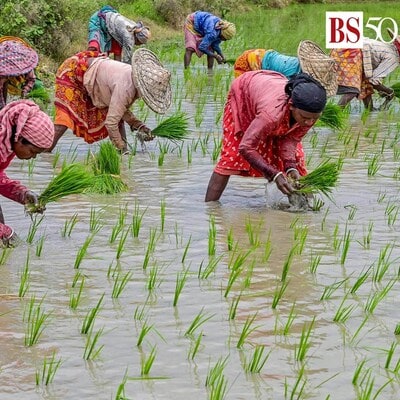According to a report by The Economic Times, India has come under scrutiny by several countries, including the US, the UK, Japan and Canada, at the World Trade Organisation (WTO) for its export restrictions and agricultural subsidies. These countries are seeking clarifications from India on multiple fronts.
Ban on rice exports
India’s ban on exports of non-basmati white rice, imposed in July last year, has prompted the United States, the United Kingdom, Japan and other countries to ask when India plans to lift or ease the restriction. Some countries have also asked whether India is considering replacing the ban with an export tariff. The export ban was initially implemented due to concerns about domestic food security, though India has made exceptions for countries such as Nepal, Mauritius and Namibia.
Food safety concerns
Canada questioned whether India took into account the food security of importing countries when imposing restrictions on wheat exports, which India banned in May 2022 due to fears of a domestic shortage following crop damage caused by a heatwave.
The role of agricultural exporting companies
Canada has also requested details on exports from companies such as National Cooperative Exports Limited (NCEL) and the National Agricultural Cooperative Marketing Federation of India (NAFED), including the value and volume of their exports, export prices and destination markets.
Subsidies for farmers
Japan has expressed concern about India’s electricity subsidies to farmers, saying the increase in these subsidies appears disproportionate to actual electricity prices. In addition, Australia and Canada have asked India about the criteria for the PM Kisan Samman Nidhi Yojana, which provides income support to farmers, as well as support offered by states such as Odisha and Andhra Pradesh.
India has provided input subsidies totalling $48.13 billion to low-income or resource-poor farmers for the marketing year October 2022 to September 2023. According to the 2015-16 Indian Agricultural Census, 99.43 per cent of agricultural holdings are owned by low-income or resource-poor farmers.
Cabinet approves plans for farmers
The 2024 monsoon season has been unpredictable, resulting in erratic rainfall, flooding and crop damage. This has created an urgent need for new agricultural practices in the country.
The Union Cabinet on Wednesday approved the extension of several schemes, including the Pradhan Mantri Annadata Aay SanraksHan Abhiyan (PM-AASHA) to ensure fair prices for farmers and regulate price fluctuations of essential commodities for consumers. The Cabinet also approved the Bio-RIDE scheme to support research and development in biotechnology, among other initiatives to support the agriculture sector in India.
The Centre also plans to invest Rs 6,000 crore in smart farming, which includes the use of artificial intelligence (AI), drones, Internet of Things (IoT) and data analytics to boost agriculture.
First published: September 19, 2024 | 10:57 am IS
Disclaimer:
The information contained in this post is for general information purposes only. We make no representations or warranties of any kind, express or implied, about the completeness, accuracy, reliability, suitability or availability with respect to the website or the information, products, services, or related graphics contained on the post for any purpose.
We respect the intellectual property rights of content creators. If you are the owner of any material featured on our website and have concerns about its use, please contact us. We are committed to addressing any copyright issues promptly and will remove any material within 2 days of receiving a request from the rightful owner.

